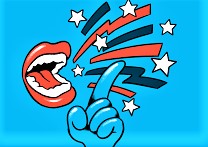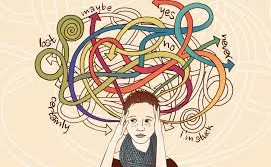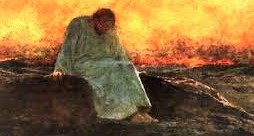
Can We Learn Anything from a Politician?
I’ve recently finished reading an exhaustive biography of Harry Truman, the 33rd president of the United States. At 1,409 pages, it’s probably one of the longest books I’ve read but well worth it since it covered much of the most perilous and interesting times in recent American history.
The book held special interest for me because Truman was president during much of my childhood, from 1945 to 1953, and was from Independence, Mo., near where I grew up in St. Joseph and Kansas City.
In 1993, biographer David McCullough won the Pulitzer Prize for authoring the book.
“No president in history had had to face so many important problems in so brief a time…,” McCullough writes. Truman was a farmer, World War I veteran, men’s store owner, and Kansas City politician before becoming senator, vice president, and chief executive after the death of President Franklin Roosevelt.
The Dreadful Decision
He had to finish the Second World War and that included the dreadful decision to drop the atomic bomb on two Japanese cities. Like many, I’m ambivalent about that decision. It brought the war in the Pacific to a swift end and saved thousands of American lives, but ushering in the nuclear era, it was at a terrible cost, not only for Japan but for the whole world.
According to McCullough, Truman was well aware of the gravity of his decision but thought it was the lesser of two evils. A few years later, he was forced to conduct another war, this time in Korea, and despite much pressure to again use devastating force, he insisted on a limited engagement, not allowing “…the horrific potential of modern war” to again get out of hand.
After the “Big War” came numerous other momentous and controversial Truman decisions, such as the courageous airlift of supplies to Soviet-blockaded Berlin; the Marshall Plan, named for his secretary of state, which helped rebuild postwar Europe; and the Truman Doctrine, which formalized a policy of Soviet containment. Truman was an early advocate of racial integration and creation of the United Nations.
Ultimate Responsibility
He loved poker and whiskey but no one ever saw him inebriated. One of his most famous lines was “the buck stops here,” a sign that for a time was on his desk, indicating that he took ultimate responsibility for whatever happened in the federal government.
But what impressed me about Truman was his way with people. Throughout the book, McCullough included comments about how Truman always treated with respect and kindness everybody he met, from the people who worked in the county offices in Kansas City to the cooks, janitors and office people of the White House.
Merle Miller was assigned to shepherd a film project on Truman and eventually wrote a book about the experience. He remembered Truman, who had no college degree, to be “an extraordinarily intelligent, informed human being.” But what most surprised him was that there was no difference between Truman’s public and private personas.
There for You
“He was such a decent human being with concern, a genuine concern, for your welfare. ‘Well, how are you?’ Truman would ask. ‘How’s your hotel?’ ‘How’s the food?’ He wanted to make you comfortable. With Truman, ‘you could reach out and there was somebody there. There was a person there! …He was there for you.”
The book made me think about how I treat people, many of whom serve me in stores, restaurants and banks. Do I always treat them with respect, kindness and patience? Doing any less is an obstacle in the search for God.
Truman didn’t wear his religion on his sleeve, but was religious nonetheless, growing up Baptist and regularly attending Episcopal services later in life.
Writes McCullough: “His whole life Truman had been moved primarily by faith….”
People searching for God are frequently urged to take saints and religious people for their models. Occasionally, we should look to ordinary people, including those who become president.



